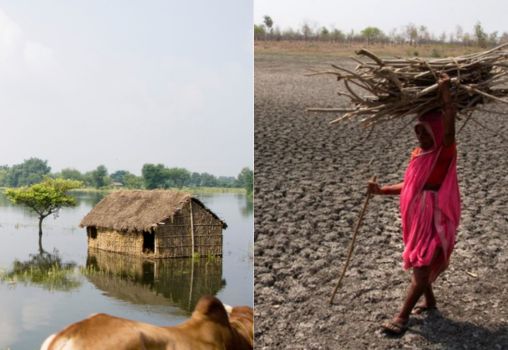Climate change is undeniably one of humanity’s most critical challenges, with far-reaching impacts on our environment and societies. However, it is essential to recognize that the consequences of climate change extend beyond melting ice caps and rising sea levels.
The health of communities worldwide is also profoundly affected by the changing climate, and these impacts cannot be ignored. From extreme weather events to food security and mental health, the health consequences of climate change are vast and wide-ranging. To effectively address and mitigate these impacts, we must adopt a multi-sectoral approach involving governments, communities, healthcare professionals, and civil society.
First and foremost, we must tackle the increasing frequency and intensity of extreme weather events caused by climate change. Hurricanes, floods, and wildfires devastate human lives, leading to injuries, deaths, and disruptions to healthcare and essential services.
To mitigate these impacts, we must invest in improving disaster preparedness and response systems. Building resilient infrastructure and implementing early warning systems can save lives and reduce the burden on healthcare systems during disasters.
Another critical concern is the rise in heat-related illnesses, which pose a significant threat, especially to vulnerable populations. As global temperatures soar, it is imperative to implement comprehensive heat action plans, provide cooling centers in urban areas, and raise public awareness about the risks of extreme heat. These measures can prevent heat-related illnesses and save lives during heat waves.
Climate change also significantly affects air quality, contributing to respiratory issues and exacerbating conditions like asthma. We must promote cleaner energy sources and sustainable transportation options to combat this. Creating green spaces in urban areas improves air quality and enhances overall well-being. Investing in these initiatives can protect respiratory health and reduce the burden on healthcare systems.
The spread of vector-borne diseases like malaria and dengue is rising due to climate change. To combat this emerging threat, we must implement comprehensive vector control programs, improve disease surveillance, and promote community education on preventive measures. By strengthening public health measures, we can effectively prevent the spread of these diseases and protect vulnerable populations.
Climate change also significantly impacts agricultural production and food availability, leading to food insecurity and malnutrition in many regions. To address this challenge, we must promote climate-resilient agricultural practices, support small-scale farmers, and ensure access to nutritious food for all. Sustainable agriculture is vital for food security and the health and well-being of communities worldwide.
Climate change-induced natural disasters and environmental changes are increasingly affected by mental health and well-being. Mental health services become crucial as communities face the trauma of losing homes, livelihoods, and loved ones to disasters. Strengthening mental health support, incorporating mental health into disaster response plans, and promoting community resilience can significantly improve mental well-being in climate-related challenges.
Changes in precipitation patterns and rising temperatures can also impact water quality, increasing the risk of waterborne diseases. Ensuring access to safe drinking water and improving water sanitation and hygiene facilities are essential to preventing waterborne illnesses. Investing in these measures can protect communities from the health risks associated with contaminated water sources.
While the strategies outlined above are crucial, addressing the health impacts of climate change requires collective action on a global scale. Burning fossil fuels and unsustainable land-use practices significantly contribute to climate change, leading to severe health impacts. To safeguard public health, urgent action is needed to decarbonize economies and transition to sustainable practices.
Governments, international organizations, and businesses must allocate adequate resources to climate-related health projects and integrate health considerations into climate policies. Monitoring progress and adapting evidence-based strategies are essential for effectively responding to climate change and its health impacts.
Climate change is not solely an environmental issue but a pressing public health challenge that demands immediate action. By adopting a multi-sectoral approach and implementing effective strategies, we can work towards building climate-resilient and healthier communities.
Urgent and collective action is required to safeguard our planet’s and its inhabitants’ health. Let us stand together and act now to secure a healthier and more sustainable future for future generations.
